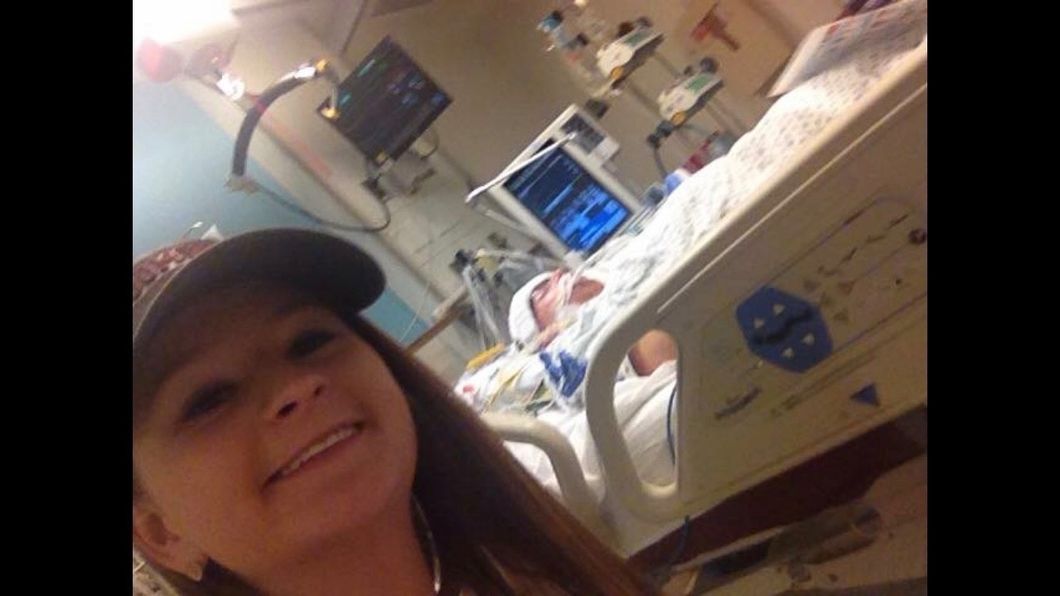I am an organ donor, and proud of it. It brings me peace of mind to know that I can continue giving back to this world and the people living in it even after my time is up. I feel very strongly in favor of organ donation, and I do so because my family has experienced it quite recently.
My Uncle Greg has cardiomyopathy. When we were younger, my cousin Kim (pictured above with her dad) used to say it meant that their daddy loved them twice as much because his heart was twice as big as everyone else's, the latter of which was true. We just didn't know that it would be as life-threatening as it was.
He eventually made the list for a heart transplant, but after months and months of waiting, things looked bleak. In January of 2015, we got the call that an eligible donor had been found, and Uncle Greg would be getting a new heart! Of course, amidst our joy and sighs of relief, there was that nagging thought in the backs of our minds that for Greg to get a second chance at life, someone else had to lose theirs.
We are coming up on the four year anniversary of Uncle Greg's heart transplant, and will forever be grateful for the young woman's heart that beats inside of his chest. Without her selfless decision to donate her organs, Uncle Greg would probably not still be with us today. Around this time of year, we are thankful for his life, but we are also thankful for hers.
During the holidays, we think a lot about giving back, and signing up to be an organ donor is a simple way to give back after your time on earth has ceased. One person can save up to eight lives through organ donation, and that is such a powerful legacy to leave behind.
There are so many misconceptions about organ donation that I'd like to clear up, in an effort to convince all those non-organ donors out there to take the 30 seconds to sign up.
A lot of people think that donating your organs means that you can't have an open casket funeral. This is not true, as trained and practiced medical professionals perform the transplant surgery, and stitch up the donor to look good as new. Any scars would be under clothes, and you wouldn't be able to tell just by looking that a person has donated his or her organs.
Many people also think that medical conditions or convoluted medical history can prevent them from donating their organs, however, there is no criteria required to be an organ donor. Pre-existing conditions may prevent certain organs from being used, but donation is always a possibility.
Others are not organ donors because they are of the belief that if doctors know, they will not work as hard to save them. This is simply not true, as a doctor's first priority is always the patient at hand. Organ transplants are never even on the table until brain death is 100% confirmed. It is their job to save lives, and it is only when they have exhausted every possible way to help a patient that they will consider organ donation.
Yet another common myth used as an excuse for non-donors is that their religion doesn't support it. In fact, most religions encourage it and view it as one final act of love.
Organ donation is free to the donor and the donor's family, usually only considered in the instance of brain death, and can be done by anyone, regardless of gender, sexuality, physical characteristics, and even age. No one is too old to save lives.
If you aren't signed up to be an organ donor, you should strongly, strongly consider it. After all, once we've passed, we really have no further use for our organs. Why not give them to people who could really, really use them? Those two little green words in the bottom corner of your driver's license can be someone's miracle and second chance at life, just like they were for my Uncle Greg.









































